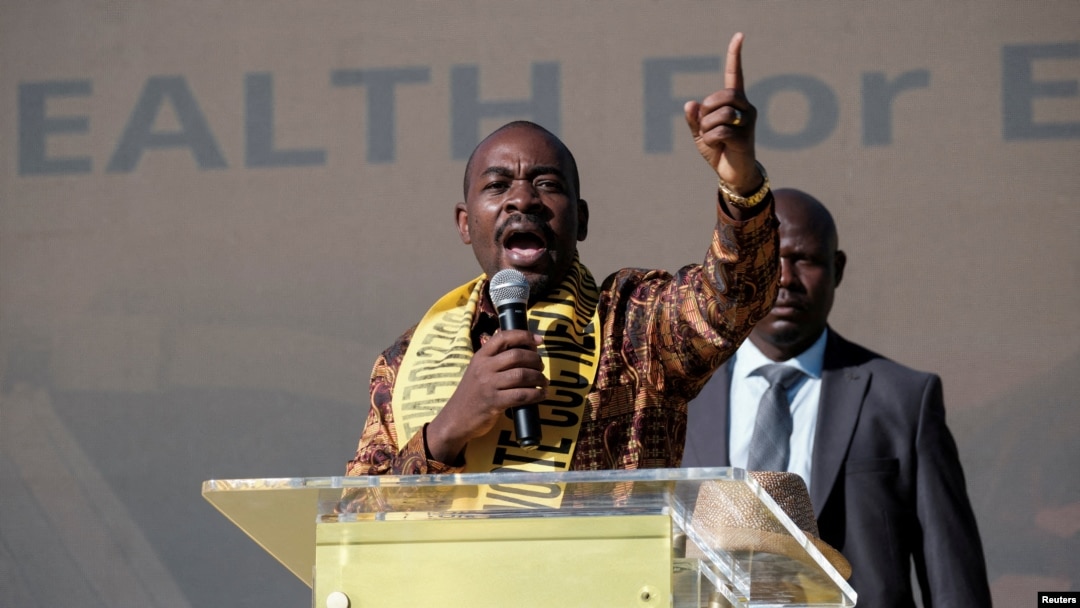In an interview with The Associated Press, Nelson Chamisa, who will challenge Mnangagwa and the ruling ZANU-PF party's 43-year hold on power in the Aug. 23 presidential, parliamentary and local government elections, claimed Mnangagwa has utilized institutions like the police and the courts to crack down on critical figures, ban opposition rallies and prevent candidates from running.
In rural areas far from the international spotlight, many of Zimbabwe's 15 million people are making their political choices under the threat of violence, Chamisa alleged. People are getting driven to ruling party rallies and threatened to support Mnangagwa and the Zimbabwe African National Union–Patriotic Front if they want to stay safe — or even alive.
Chamisa, who leads the Citizens Coalition for Change party, CCC, called it a choice of “death or ZANU-PF” for some.
“Mnangagwa is clearly triggering a national crisis," he said, adding “He is driving the country into chaos. He is actually instigating instability. He is violating the law. He is tearing apart institutions of the country.”
On Thursday, a man wearing the yellow colors of Chamisa's CCC party was beaten and stoned to death on the way to a political rally, police said. The CCC accused ZANU-PF followers of killing him and attacking other opposition supporters.
Mnangagwa has repeatedly denied allegations of intimidation and violence by authorities or his party and has publicly called on his supporters to act peacefully during the campaign.
But Chamisa's portrayal of a highly repressive political landscape in the southern African nation is backed by reports released by Amnesty International and Human Rights Watch ahead of the elections taking place in less than three weeks.
SEE ALSO: Zimbabwe Rights Groups, Opposition Decry 'Patriotic Bill'A court decision disqualified all 12 CCC candidates in Bulawayo, the second-largest city, from standing in the election, even after the electoral agency said they had registered properly. They successfully appealed to the Supreme Court to be allowed to stand.
“I am nowhere near the court,” Mnangagwa said, denying any influence on the initial decision to bar the opposition candidates.
Chamisa, a 45-year-old lawyer and pastor, said Mnangagwa was now overseeing a second coup in Zimbabwe.
“You can’t have a contest without contestation. You can’t have an election without candidates," Chamisa said. “Once you eliminate candidates, you are actually eliminating an election. And that’s the point we are making. … It’s a coup on choices.”
The elections will be monitored by observers from the European Union and African Union, who were invited by Mnangagwa. He says he has nothing to hide. Human Rights Watch has questioned if the observers will be allowed to access all parts of the country, while their small numbers make it likely they won't be able to monitor the entire vote. There are 150 observers from the EU and more than 12,500 polling stations across the country.
“He [Mnangagwa ] must be stopped because he can’t drive the whole nation and plunge it into darkness and an abyss on account of just wanting to retain power," Chamisa said. "Zimbabweans deserve peace, they deserve rest. They have suffered for a long time.” he added.


